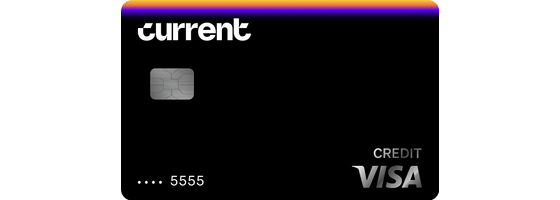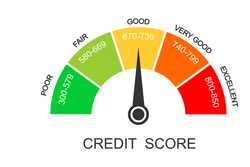- Easy to qualify for
- Improve your credit score without borrowing money
- Low-fee cards are available
Best Credit Building Debit Cards in February 2025

Our evaluations and opinions are not influenced by our advertising relationships, but we may earn a commission from our partners’ links. This content is created by TIME Stamped, under TIME’s direction and produced in accordance with TIME’s editorial guidelines and overseen by TIME’s editorial staff. Learn more about it.
If you’re new to credit, you’re probably wondering how on earth to establish credit history without having a credit score. After all, many beginner credit cards have a minimum credit score requirement.
There are a few ways to build credit with a poor or nonexistent credit history. The easiest may be with credit-building debit cards. These cards can report a payment history to the major credit bureaus without you having to borrow money. Debit cards don’t require a credit check, so the right ones can be a good fit for anyone looking to boost their credit profile.
Unlike most debit cards, the Extra debit card doesn’t require you to open a new checking account with a specific bank. Extra works with more than 10,000 banks around the U.S. to ensure that your new card will seamlessly integrate into your lifestyle.
As is the case with many credit-building debit cards, Extra tracks how you use your card and provides the money you need to complete your purchases.
Extra determines how much money you can borrow based on your bank account balance. Each day, Extra withdraws the money it lent you from your bank account and pays off your bills. At the end of the month, it reports your activity (namely, your excellent payment history) to Equifax and Experian.
The Extra debit card’s biggest weakness is its monthly fees. You pay $20 per month (or $149 per year) for the privilege of using the card, or you can pay $25 per month (or $199 per year) for the rewards-earning version of the card.
While you can earn up to 1% cash back for everyday purchases, you’d have to spend over $1200 in qualifying purchases with the card each month to offset the yearly fees.
The Current Build card isn’t technically a debit card—it’s a secured charge card. However, it doesn’t require a credit check, so it’s essentially as easy to open as a debit card.
There’s no annual fee, no minimum balance requirement, no bank transfer fees, and no ATM fee (as long as you use one of the 40,000 in-network ATMs). It also earns rewards for purchases—up to seven points per dollar with select merchants. You can redeem points for cash at a rate of one cent each.
When you swipe your card and pay your bill, Current will report your activity to TransUnion, a major credit bureau many lenders use. Unfortunately, it won’t report your activity to the other two major credit bureaus: Equifax and Experian. This is a shortcoming, as many other cards report to all three bureaus, ensuring that any future lender will see your good behavior.
You can access the Experian Smart Money debit card when you open an Experian Smart Money digital checking account. There are no monthly fees, and you even get a $50 bonus when you direct deposit at least $1,000 within 45 days of account opening.
The card doesn’t improve your credit score like most other credit-building debit cards. Instead, it utilizes Experian’s free Experian Boost, which gives you the ability to earn brownie points on your credit report by faithfully making payments that are not credit-specific. For example, Experian Boost will monitor when you pay your rent, utilities, or Netflix bill and record it on your Experian credit report.
Note that Experian Boost only improves your Experian credit profile. It doesn’t report to other credit bureaus.
The Fizz debit card is one of the few debit cards that earns rewards on purchases. It targets students, offering five points per dollar at merchants typically found near college campuses (think Starbucks, Barnes & Noble, Shake Shack, etc.).
You also earn five points per dollar with Amazon and three points per dollar toward one category of your choosing, including restaurants, groceries, nightlife, and more. Points can be cashed out at a rate of one cent each.
Fizz will assess how much money you’ve got in your linked bank account and set a credit limit based on that amount. It’ll even recommend a daily spending amount to prevent you from developing habits that can put you in debt in the future. The card will stop working if your bank account gets too low or you miss a payment.
| Debit card | Best for | Monthly fee | Minimum deposit | Spending limit |
|---|---|---|---|---|
Extra | Keeping your primary bank account | Either $20 or $25 per month (depending on the plan) | None | Your “Spend Power” is based on your real-time bank balance |
Current Build | Low fees | None | None | Up tp $2,500 per day; overall limit tied to security deposit amount |
Experian Smart Money | Welcome bonus | None | None | Tied to the amount of money in your Experian Smart Money Digital Checking Account |
Fizz | Students | None | None | Tied to the amount of money in your linked bank account; set on a daily basis |
In deciding which are the best credit-building debit cards, we prioritized two criteria above all else: account fees and accessibility. The cards with the lowest (or most justified) fees and those that report to the major credit bureaus appear on this list.
The best credit-building debit cards report to at least one major credit bureau, and some report to more than one. We factored this into our decision and even included rewards for spending and welcome bonuses.
When searching for the perfect credit-building debit card to reach your goals, consider the following key features:
Opening a debit card that you’ll actually use is essential. Does the issuer enforce lower spending limits than you’d like? Do you need to open a new checking account, or can you simply link your new card to your main checking account? Are there monthly fees? If so, is the card worth the price?
Ideally, you’ll choose a debit card that reports to multiple credit bureaus. TransUnion, Equifax, and Experian are the three credit bureaus most lenders use when considering you for a loan. If your card only reports to one of them, the lender may not see your positive credit habits when it checks your credit. Try to find a debit card that reports to at least two of them.
Rewards shouldn’t be your only focus when looking for a credit-building debit card, but they might be the deciding factor once you’ve narrowed down your choices. Some cards offer points that can be converted into cash, while others offer a lump sum in the form of a welcome bonus. If you can find a card that puts money back in your pocket for purchases you planned to make anyway, open it.
A common strategy for building credit is to find a credit card with lenient approval standards. Secured credit cards generally match this description if you provide a refundable security deposit. Your credit limit will be proportional to the size of your deposit, so if you default on your loan, the bank can use your money to pay off the debt you’ve accrued.
The Self Visa is a popular secured credit card. Its main draw is that it doesn’t require a hard credit inquiry, so your credit score isn’t a factor. However, the process for opening the card is a bit of a slog, and its fees are high. Learn more in our Secured Self Visa credit card review.
The Chime Credit Builder Secured Visa is a cheaper alternative. It also doesn’t require a credit check, nor is there a minimum security deposit. Instead, it allows you to charge the amount you transfer from your linked checking account. Read our Chime Credit Builder review for more details.
You don’t need to use revolving debt to build credit. Several companies specialize in loans for bad credit.
For example, Upstart offers loans for people with bad credit scores (anything below 600). Based on your creditworthiness, you can be approved for between $1,000 and $50,000. Just remember that your primary objective is trying to build credit; if the loan for which you’re approved isn’t for very much, that’s OK.
Upgrade also extends credit to those with little or no credit history, though its approval standards are higher. If you qualify, you can be eligible for a $200 bonus if you open a Rewards Checking Plus account. Bonuses like these aren’t usually offered with credit cards that accept bad credit.
It’s possible to build credit without having a loan in your name. For example, authorized users from banks such as Capital One, Citi, and U.S. Bank report credit card account information to the primary cardholder and any authorized user’s credit profile.
In other words you can ride the coattails of someone with responsible credit by asking to be added as an authorized user on their credit card. Any payment history, credit utilization, etc. will appear on your credit report, even if you never use your authorized card.
A credit-building debit card is a financial product that lets you spend money from a linked checking account. It reports your payment history to popular credit bureaus to help you improve your credit score.
Credit-building debit cards do not require a hard credit inquiry. They are not credit cards, as they (generally) don’t provide access to money beyond what you’ve got in your checking account.
However, to build your credit, many of these debit cards still extend credit to you—sort of. When you make a purchase, the debit card issuer will pay for the purchase in your stead, effectively lending you a chunk of credit in the exact size of your transaction. It will then withdraw the money from your checking account to pay itself back. By providing incremental credit lines, the issuer is able to the credit bureau that you’re using credit.
A credit-building debit card is for those with poor or no credit history. It’s a stepping stone to bigger and better things, such as auto loans and cash back credit cards, which often require a credit score of at least 670.
Once you’ve built a good credit score, you can dispose of your credit-building debit card in favor of more rewarding payment options.
It’s easier than ever to build credit without a credit score. Thanks to debit cards that report your activity to major credit bureaus, just about anyone can improve their credit score without the need to apply for a loan. Just be mindful of potential fees and make sure you choose a card that you actually use.
Yes, but you must have a debit card that reports your payment history to at least one of the major credit bureaus—preferably all three.
The best secured credit cards are those that don’t incur an annual fee and earn rewards for purchases. Cards such as the U.S. Bank Cash Secured Visa and Capital One Quicksilver Secured are good examples.
The best loans for bad credit are usually personal loans from lenders such as Upstart and Upgrade. These companies are more willing to lend to those with a bad credit score than many banks.
The information presented here is created by TIME Stamped and overseen by TIME editorial staff. To learn more, see our About Us page.







